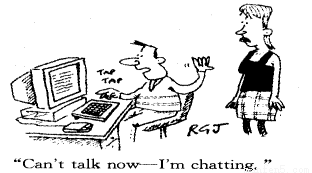题目内容
(2017·天津卷·单项填空)It was when I got back to my apartment ___________ I first came across my new neighbors.
A. who B. where C. which D. that
 天天向上一本好卷系列答案
天天向上一本好卷系列答案 小学生10分钟应用题系列答案
小学生10分钟应用题系列答案选词填空
根据语境,用方框中所给短语的适当形式填空。(每个短语仅使用一次)
under construction be absorbed into apart from become interested in die of look into expose...to… (be) suspected of put forward slow down |
1. ____________ stopping water pollution by law, it is everyone’s responsibility to make good use of water.
2. I like watching English programmes so I ____________ English.
3. We consider it quite necessary to __________ the failure before doing anything else.
4. The train _________ suddenly, the lights went off, and then there was fire and smoke.
5. My mother ____________ cancer when I was 10 years old, so I have to learn to live alone.
6. Potatoes turn green when they ______________ the light.
7. With the development of economy, our countryside is increasingly __________ the large cities.
8. The naughty boy was ____________ having damaged the computer.
9. Many people are likely to accept any idea __________ by experts on TV.
10. A new eight-kilometer road is ____________ that links the airport with the city.
Passage 3(2017届江西省上高二中高三考)
体裁 | 话题 | 词数 | 难度 | 正确率 |
说明文 | Jake Beckman呼吁出版商应对读者负责 | 361 | ★★★☆☆ |
The Internet is full of headlines that grab your attention with buzzwords (流行词). But often when we click through, we find the content hardly delivers and it wastes our time. We close the page, feeling we’ve been cheated. These types of headlines are called "click bait".
A headline on Businesslnsider.com reads: "This phrase will make you seem more polite". First, when you click through, you find another headline: "Four words to seem more polite." Then, on reading the article, you find it’s actually an essay about sympathy. And what are the four words? They’re "Wow, that sounds hard." On some video websites, you might encounter headlines such as "Here’s what happens when six puppies visited a campus". Turns out it’s just some uninteresting dog footage (镜头).
Nowadays, with the popularity of social media, many news outlets tweet (推送) click bait links to their stories. These tweets take advantage of the curiosity gap or attempt to draw the reader into a story using a question in the headline. These click bait headlines are so annoying that someone is attempting to save people time by exposing news outlet click bait through social media. The Twitter account @SavedYouAClick, run by Jake Beckman, is one such example.
Beckman’s method is to grab tweets linking to a story and retweet them with a click-saving comment. For example, CNET tweeted "So iOS 8 appears to be jailbreakable but...", with a link to its coverage of Apple’s product announcements. Beckman retweeted it with this comment attached: "... it hasn’t been jailbroken yet."
Since founding the account, Beckman’s Twitter experiment has brought him more than 131,000 followers. Beckman said that @SavedYouAClick is…"just my way of trying to help the Internet be less terrible." Asked about his goal, he said, "I’d love to see publishers think about the experience of their readers first. I think there’s an enormous opportunity for publishers to provide readers with informative updates that include links so you can click through and read more.
1.The article on Businesslnsider.com turns out to be___________.
A. useful suggestions on politeness
B.an essay about another topic
C.an article hard to understand
D. a link to a video website
2.Why are readers often cheated by tricky headlines?
A. Social media has become more popular.
B. Readers have questions to be solved.
C. Such headlines are fairly attractive.
D. There’re always stories behind them.
3.Beckman attached his comment to CNET’s tweet to __________.
A. criticize CNET B. save readers’ time
C. advertise apple’s new product D. tell readers something about iOS 8
4.In the last paragraph, Beckman appeals that _________.
A. publishers be more responsible for the link
B. readers think about their needs before reading
C. publishers provide more information for readers
D. people work together to make the Internet less terrible


